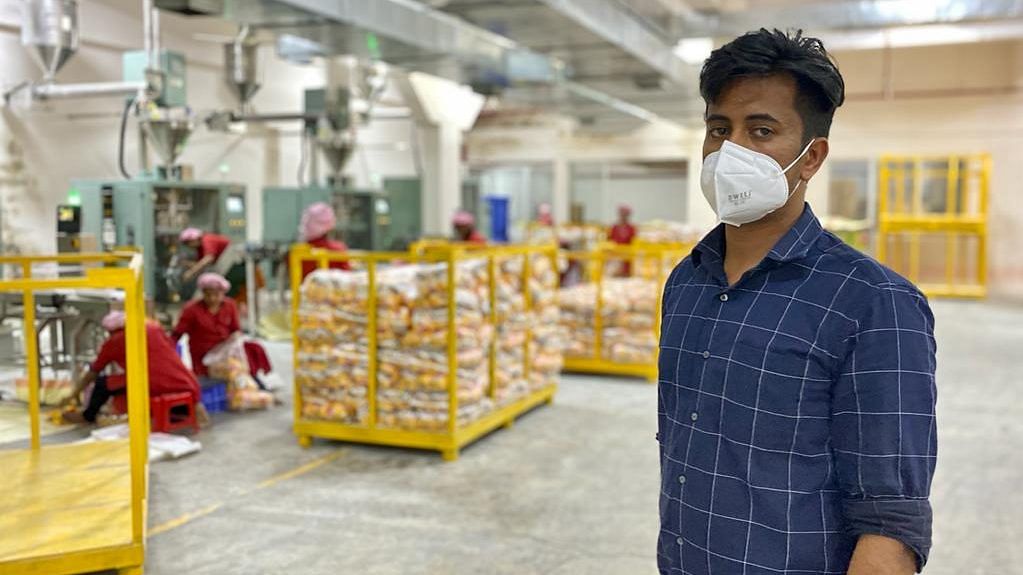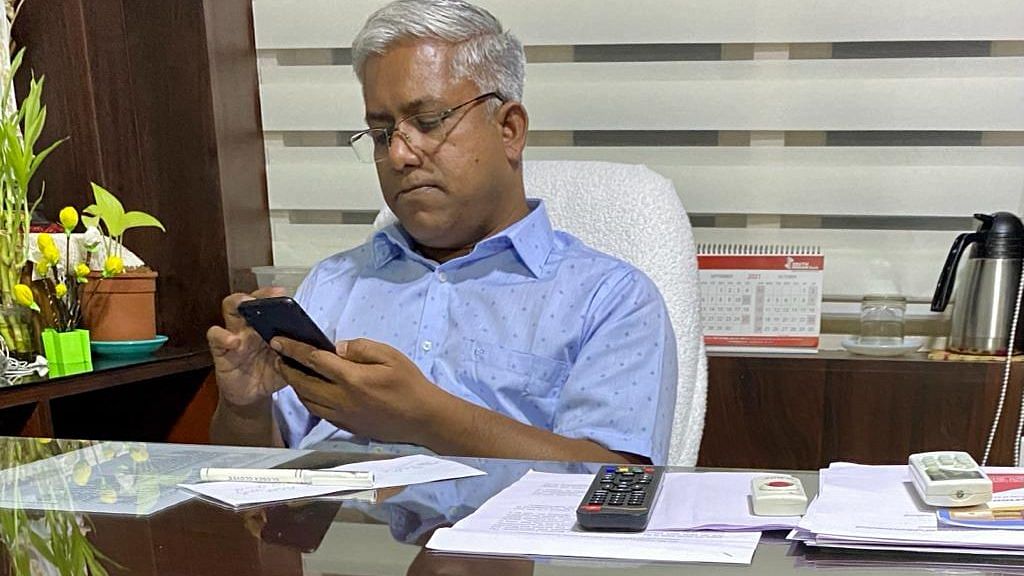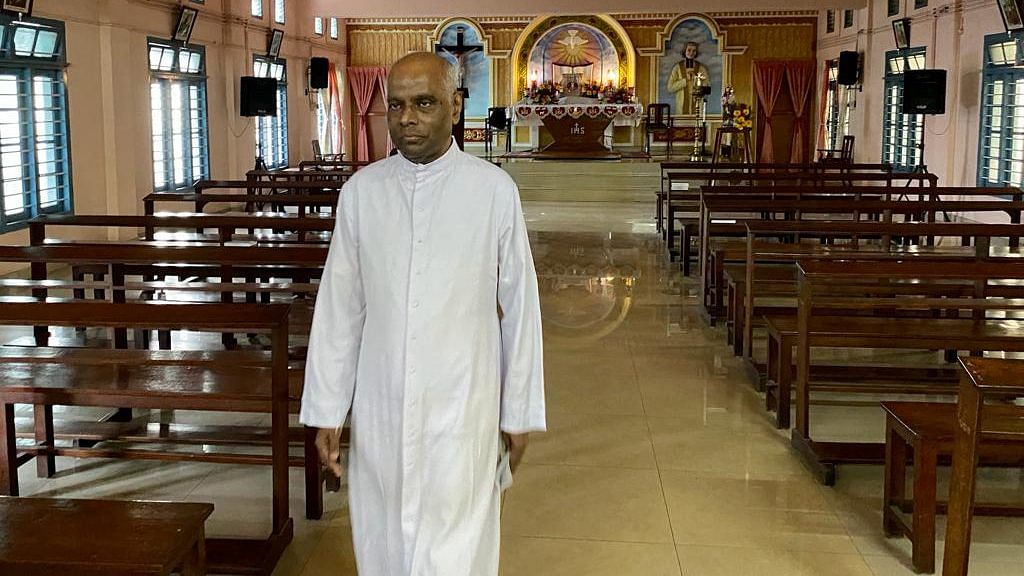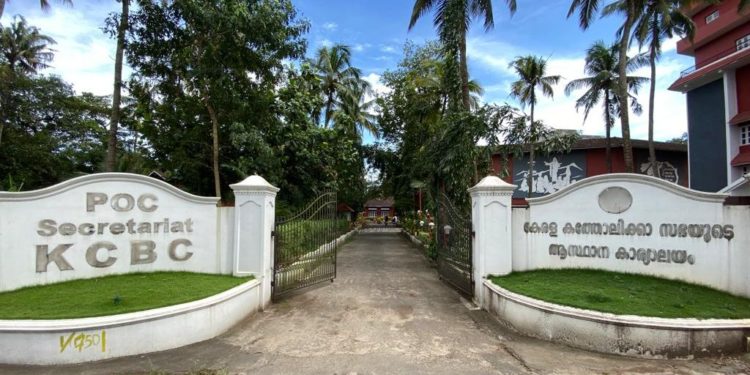Text Size:
Kerala: K.A. Rashid, 33, is the director of Ajmi Foods, one of the most popular ready-to-cook packaged food brands in Kerala. From upma and idiyappam to puttu podi and rice powder, the brand that was started by Rashid’s father in 1994 very quickly became a household name due to its wide range and high quality of products.
Last week, Rashid and his team woke up to a barrage of calls from concerned distributors and customers. All of them had one question — Did Ajmi Foods fund the protests against a senior bishop of the Christian community?
Rashid told ThePrint he didn’t have a clue about what they were referring to.
The protest in question was held on 10 September and led by members of the Christian community against a bishop who recently warned of “love jihad” and “narcotics jihad”. The views have triggered outrage in Kerala, including from within the Christian community.
A series of WhatsApp messages and Facebook posts had alleged that it was Ajmi Foods that provided transportation for, and also funded these protests in order to create a rift in the Christian community. The posts had all called for a boycott of the company.
“Ajmi Puttu powder is a 100 crore Jihadi empire… We should boycott those who bring out people against Pala Bishop’s statement and launch Jihad campaigns against Christians,” one of the Facebook posts read.
A similar set of rumours were also floated against KKFM India — another food company owned by a Muslim family. While Ajmi Foods has been running for 28 years, KKFM has been around for 20, and neither have ever faced anything of this sort, their owners said.
“It was really disappointing to see this happen in a state like Kerala where we have all co-existed peacefully. It was a hate campaign, specially meant to target the two companies run by Muslims,” Rashid, who continues to be disturbed by the incident, told ThePrint.
Both Ajmi Foods and KKMF have filed police complaints against those who circulated the messages on social media.
The Facebook posts didn’t just accuse the two companies of funding the protests, but also alleged that they were connected to the infamous assault on T.J Joseph — a professor in a Christian minority institution who set a question paper with the name ‘Mohammed’ used in a controversial passage in 2010. Joseph’s hand was chopped off in 2010 by members of the Popular Front of India (PFI) — an extremist Islamic organisation.
“The firm belongs to those accused of cutting down Joseph sir’s hands,” one of the Facebook posts had alleged.
“That was the most ridiculous bit. We have absolutely nothing to do with those who assaulted the professor,” said Fayas Mohammed, KKMF’s marketing manager.
Both companies are headquartered in Erattupetta, a town in Kerala’s Kottayam district, where a vast chunk of the state’s Christian community live. Just 12 km away lies Pala — a Christian-dominated town that has gained notoriety for its Bishop’s recent views.

Deepening fissures between Muslims and Christians
It’s not just love that ‘jihadi terrorists’ are resorting to, but narcotics too are being used to “trap” non-Muslims, Pala Bishop Joseph Kallarangatt, a popular Kerala clergyman remarked earlier this month.
“They’ve realised that in a nation like India, taking up weapons & destroying others isn’t easy, they’re using other means. Their aim is to promote their religion and end non-Muslims. They use ‘love jihad’ & ‘narcotic jihad’,” he said.
Bishop Kallarangatt’s Pala Diocese subsequently released a statement attempting to clarify that his statements weren’t against any particular community but only “gave a warning about the dangerous trends prevalent in society”.
But it was too late by then. The bishop’s statements had already ruptured Kerala’s social landscape — the ramifications of it being felt on ground very clearly by Ajmi Foods and KKMF.
And his church is a repeat offender on this front.
The Pala bishop is part of the Syro-Malabar Church — one of the largest Christian denominations in Kerala.
In January 2020, the Syro-Malabar Church, which is the second-largest eastern Catholic church in the world after the Ukrainian Church, released a statement saying that Christian girls are being “targeted and killed” in the name of ‘love jihad’.
“The growth of love jihad endangers the communal harmony and peace in Kerala. It is a fact that Christian girls are being targeted by the love jihad in the state,” the statement read.
In April 2021, ThePrint had reported how the church’s statements were actively driving the ‘love jihad’ narrative in Kerala with various Christian WhatsApp groups inundated with videos warning of the “threat.”
But apart from the church, the Pala bishop has himself been part of controversies in the past, most notably when he donated money for the Ram Mandir in March this year, just weeks before the Kerala assembly polls, raising several eyebrows as it showed the church’s growing proximity to the Sangh.
Then, in July, Bishop Kallarangatt announced sops to Christian families that have five or more children.
John Dayal, activist and secretary-general of the All India Christian Council, told ThePrint that this showed the Church’s insecurity and how it is feeling “threatened and weakened”.
“The Christian population is decreasing due to the simple fact that members of the community are increasingly having fewer children. And when that happens, donation to the church decreases, the Christian voter population decreases. It’s seen as both an economic and a political loss by the Church,” Dayal told ThePrint.
What had aggravated these anxieties was a 2015 government order reformulating the minority scholarship scheme in the state to an 80:20 ratio in favour of Muslims.
Several Christian organisations had been protesting the order, before it was scrapped by the Kerala High Court in May this year. The court ruled that the division has to be in accordance with the population ratio. According to the new scheme, the scholarship will be divided in a 60:40 ratio, in line with the population of the two minorities.
It hasn’t helped matters that between 2016 and 2018, a group of 20-odd Muslim youth travelled to Afghanistan and joined ISIS — some of these included women who had converted from Christianity to Islam. These women were subsequently made poster-images of the supposed ‘threat of Islam’.
C.H. Rahim, chairman of the Forum of Faith and Harmony, a popular Muslim body in Kerala, said that the growing prosperity of the Muslim middle class has also aided this “insecurity”.
“When Muslims go and work in the Middle East, the remittances are seen as helping the community grow financially here. However, the entire state is growing because of that, but that’s often not considered,” Rahim said.
“If this hate against Muslims continues, it will just mean Christians will become pawns in the hands of the Right-wing, and it will hurt Kerala’s secularism in the long run,” he added.
ThePrint reached the Pala Bishop Joseph Kallarangatt and the Syro-Malabar Church’s archbishop George Allencherry for a comment but both their secretaries said they wouldn’t like to comment on the matter.
Also read: Tensions between Kerala Muslims and Christians need to be sorted. The Sangh is watching
Church stands its ground, despite CM criticism
After the Pala bishop’s remarks last week, the Kerala Catholic Bishops’ Council (KCBC) had come out in support of it, calling for the issue to be “discussed responsibly”.
The KCBC includes members from all three denominations within Catholics — Syro-Malabar, Latin and Syro-Malankara — but the body’s chairperson is Archbishop George Allencherry.
Speaking to ThePrint, Father Jacob G. Palackappilly, a bishop and spokesperson of the KCBC, said the “narcotic jihad” terminology is “all based on facts”.
“It’s a reality that narcotic usage is prevalent in our society, how can anyone deny that?” he said.
When asked what the term ‘narcotics jihad’ meant, Palackappilly opened copious PDF documents he had saved on his phone as “evidence”.
One such document is a paper published by a body called the ‘European Foundation for South Asian Studies’, which explores the connection between terror outfits in Afghanistan and the opium grown in the country. The paper titled: “‘Narco-Jihad’ – Haram money for a Halal cause?” concludes: “Any policies emphasizing the stabilization of Afghanistan…without effectively addressing the narco-trade will be unsound and unsustainable, since the drug economy remains one of the main sources of funding for terrorism in the region”.
Asked what this has to do with Kerala, Palackappilly said “many couples have gone to Afghanistan from Kerala in the last few years”.
He, however, evaded the question on the specific number of “narcotics-jihad” cases in Kerala.
“Why should I tell you… You can go and check that, we cannot reveal the information we have,” he said. “We cannot rely on you people. It is not good to tell everything to the media.”

With the controversy continuing to create ripples in the state, Chief Minister Pinarayi Vijayan held a press conference Wednesday where he denied there being any connection between religion and narcotics.
According to government data presented by the chief minister, 4,941 cases were registered in Kerala under the Narcotic Drugs and Psychotropic Substances Act (NDPS Act) in 2020. Of the 5,422 accused in these cases, 49.8 per cent were Hindus, 34.47 per cent were Muslim and 15.73 per cent were Christians. “There is no unusual ratio in these figures. The narcotic business is not on the basis of religion,” Vijayan said.
He also dismissed any cases of women being lured on account of drugs in schools or colleges. “If any of them uses drugs or becomes part of the drug peddling network, it is puerile to analyse that as part of a concerted attempt of any religion,” he said.
Earlier too, the CM had slammed the bishop for his remarks. “This is Kerala, the cradle of secularism. Don’t think that the harmony here can be sabotaged. Such moves from anyone would be dealt with sternly by our society,” he had said.
Despite these warnings, the Syro-Malabar Church and the KCBC haven’t withdrawn their statements. “The government should investigate the matter and protect the society. This is a big issue,” Palackappilly maintained.
Also read: CPM inducts Congress defectors in Kerala, in move away from insistence on ideological purity
Nuns, bishops, activists — backlash from Christian community
While the Syro-Malabar heads seem adamant on their position on “love jihad” and “narcotics jihad”, they have received massive flak and opposition from within.
Days after the Pala bishop’s statement on “narcotic jihad”, another priest was reiterating his statements in a prayer service in a church in Kottayam’s Kuravilangad. But four nuns present walked out of the service calling it a way of “sowing the seeds of communalism”.
The four nuns were the same ones who had earlier protested over the presence of rape accused Bishop Franco Mulakkal.
Another senior nun, Sister Teena Joseph, has been vocal in her criticism of remarks of this sort.
“Jesus taught us love. But statements like these will only create divisions in society. I know I might get backlash for speaking against top priests and bishops, but speaking against evil is our duty,” she told ThePrint.
Not just the nuns, Father Paul Thelakat, who runs a Cathloic newspaper, Sathyadeepam, has also come out against the Syro-Malabar Church’s recent statements.
“There has been a clear shift in the attitude of some Christian leaders against Muslims,” Thelakat told ThePrint. “Do they think Christian girls are so naive that they can be easily manipulated and lured? That is not true. They are mature girls.”
Thelakat has served as the spokesperson of the Syro-Malabar Church himself from 2000 to 2015. But the priest said that the situation was different at the time, because the leadership for the vast chunk of his tenure was different.

The present Archbishop, Father Allencherry, was appointed to the post in 2012. Since 2018, he has been embroiled in land scams with the Income Tax department repeatedly questioning him over allegations of tax evasion in a 2016 land deal.
Members of the Christian community claim that it is these scam allegations that have led to the church showing a newfound closeness to the BJP and the central government.
Just two months before the 2021 Kerala assembly elections, heads of various church bodies, including Alencherry, had met Prime Minister Narendra Modi, and reportedly discussed ‘love jihad’ among other issues.
Shyju Antony, convenor of activist group Archdiocesan Movement for Transparency, alleges a “clear political agenda” behind the recent spate of statements by the Syro-Malabar Church on love jihad.
“It is clear that the heads of the church want to align themselves with the BJP and the central government,” Antony said. “This is a tactic of self-preservation, nothing else. But they are doing grave damage to Kerala’s social fabric.”
(Edited by Arun Prashanth)
Also read: Kerala’s IUML under fire for disbanding women’s wing that complained of sexual harassment
Subscribe to our channels on YouTube & Telegram
Why news media is in crisis & How you can fix it
India needs free, fair, non-hyphenated and questioning journalism even more as it faces multiple crises.
But the news media is in a crisis of its own. There have been brutal layoffs and pay-cuts. The best of journalism is shrinking, yielding to crude prime-time spectacle.
ThePrint has the finest young reporters, columnists and editors working for it. Sustaining journalism of this quality needs smart and thinking people like you to pay for it. Whether you live in India or overseas, you can do it here.
Support Our Journalism
Credit: Source link




